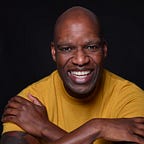The Mystery of Marley: Why Wasn’t Black America More Into Bob?
It’s hard to imagine that hip hop and rap would have flourished as such powerful social and political musical forces without their iconic antecedent.
Life after death is such a staple in the music realm that it’s become practically cliche. But nearly four decades after his passing, Bob Marley’s level of immortal continues to surpass that of every gone-to-soon icon ever to be posthumously inducted into the Rock & Roll Hall of Fame, with the exceptions of, to borrow from a song by George Michael, another R.I.P. genius, John (Lennon), Elvis, and possibly maybe Marvin.
Here, though, is the unexpected twist: Despite Marley’s status as a black poet-prophet on par with Dear Mr. Gaye, there’s always been something curiously white about his enduring mass appeal.
I’d go so far as to say that outside of the Caribbean islands, Marley’s American legacy revolves more around his popularity among white audiences than black ones. You’re more likely to hear his 1984 compilation Legend playing in a Delta Chi frat house (as I have), or in a club in Buenos Aires (as I have), than at an all-black party in New York City (dream on).
